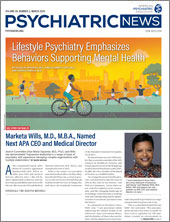Many of us have seen the somewhat sensationalistic press coverage of purported conflicts of interest (COI) among the people involved in producing DSM-5-TR, the text revision of DSM that appeared in 2022. Here are the facts.
First of all, what was the purpose of DSM-5-TR? In addition to the diagnostic criteria for which DSM is best known, the volume contains a great deal of other information regarding individual disorders. This includes data based on the latest research on prevalence, development and course, risk and prognostic factors, comorbidities, and more. (Information on treatment, however, which might be most likely to benefit the pharmaceutical industry, is beyond the scope of DSM.) Over time, of course, new studies appear, conclusions change, and the text becomes dated. Hence, the primary purpose of this revision of DSM-5 was to update the text to reflect the latest knowledge in psychiatry since the publication of DSM-5 in 2013. As the process was underway, to the extent that contradictions were identified in several of the criteria themselves, those were corrected, wording was updated, and changes previously approved as part of the DSM’s iterative revision process were added.
As always, maintaining the integrity of DSM was a primary concern for APA. Hence, the risk of COI was taken very seriously. In contrast to assertions about “undisclosed” conflicts, all participants in the process had to disclose all sources of income. That information was made available to the DSM-5-TR COI Review Editor, who examined every proposed revision to the text. Proposed changes that could be perceived as possibly benefiting industry in any way were flagged and subjected to an additional level of review, which involved consideration of whether the contributors’ outside interests may have impacted their recommended text changes. If the proposed change could have been affected by those relationships, it was not implemented. The leadership of the DSM-5-TR process, including the DSM Steering Committee, was subject to additional restrictions. They were required not to have received (or to divest, if they had) more than $5,000/year in income from industry.
Why not just exclude anyone with a relationship with industry from participation in revisions of DSM? Many of the leading experts in psychiatry have some kind of relationship with pharmaceutical and other companies. For example, they may serve on scientific advisory boards, consult on research design, or receive funding for research (which goes to their institutions and probably accounts for the clear majority of funds involved). It should be emphasized that these are all legitimate roles for psychiatrists to play in furthering the development of effective treatments for mental disorders. To exclude these experts would, in many cases, mean that the people who know a disorder best could not contribute their knowledge to DSM.
In place of that self-defeating approach, APA elected to follow a different path: to enforce stringent disclosure requirements and scrutinize proposed changes for evidence that outside relationships may have played a role. That the critics have been unable to point to biased or invalid information added to DSM-5-TR suggests that this approach was strikingly successful. ■

